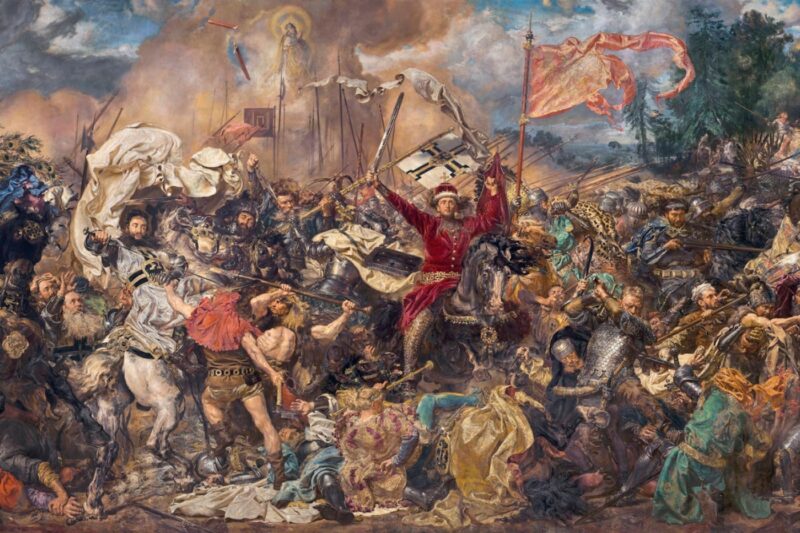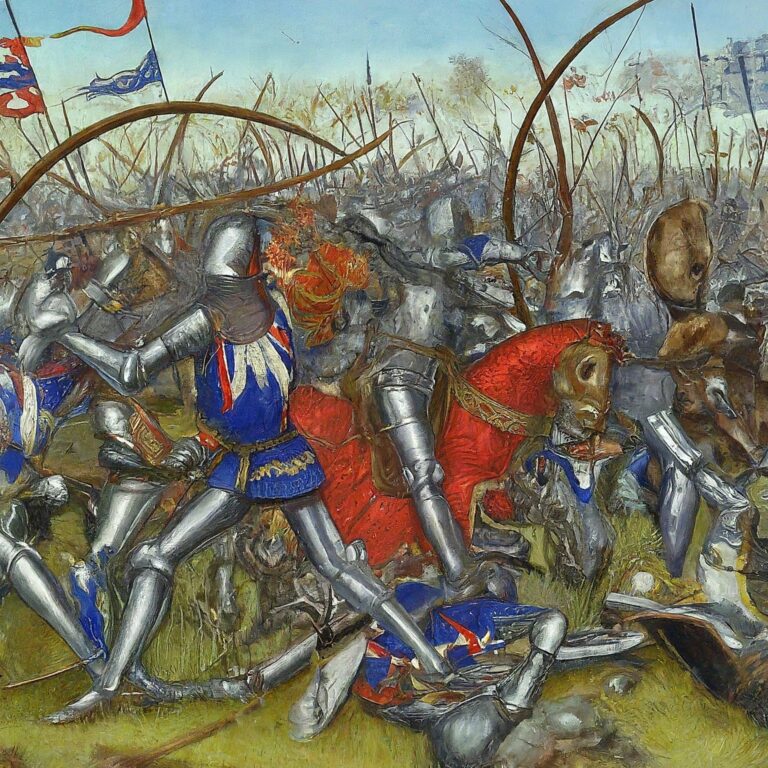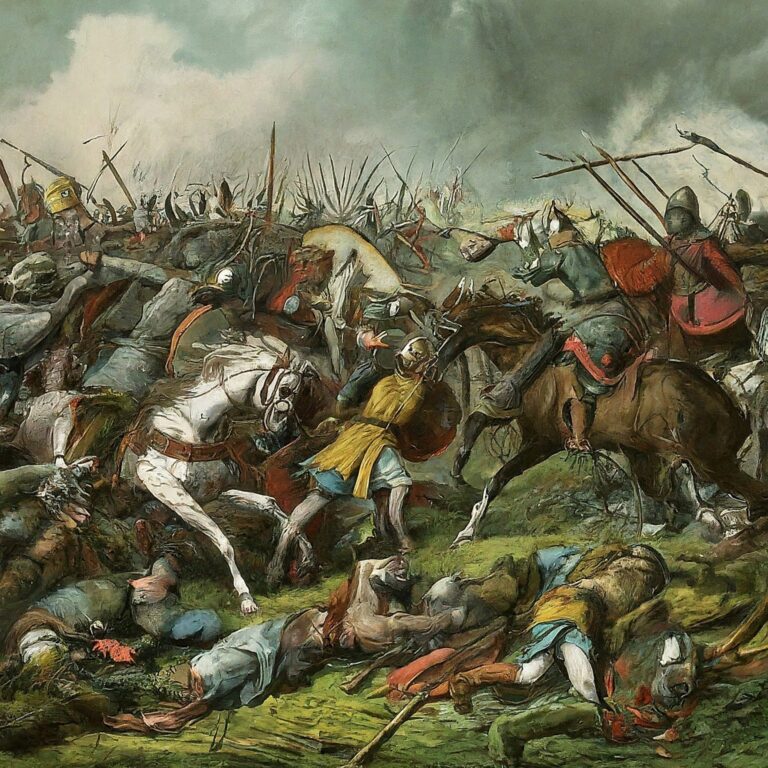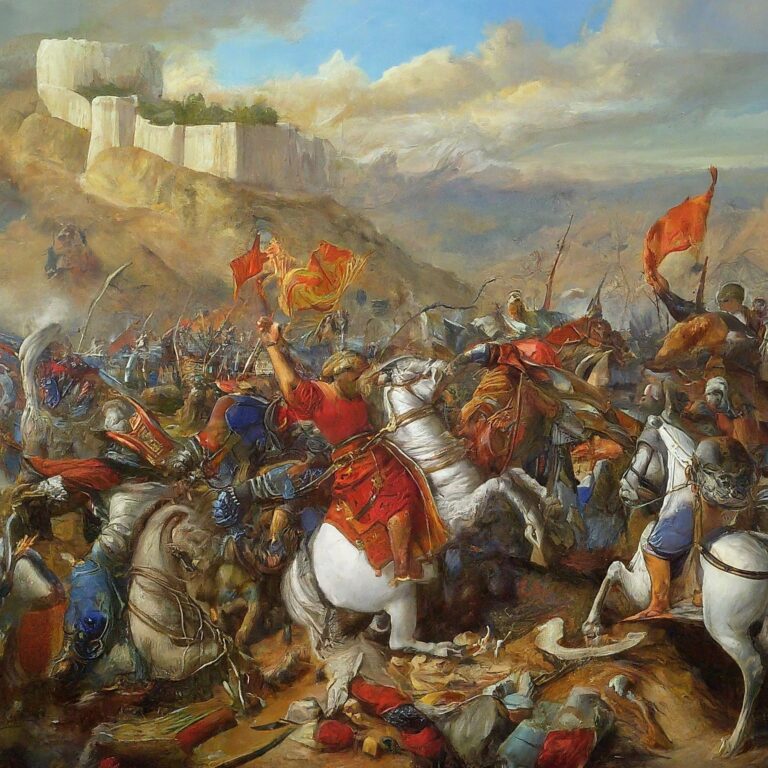The Battle of Grunwald, fought on July 15, 1410, was a decisive conflict during the Polish-Lithuanian-Teutonic War and is one of the most significant battles in medieval European history. It marked a turning point in the struggle between the Kingdom of Poland, led by King Władysław II Jagiełło, and the Teutonic Order, a powerful military and religious organization.
The conflict’s roots lay in the expansionist ambitions of the Teutonic Order, which sought to dominate the Baltic region and its surrounding territories. The Order had been engaged in a series of conflicts with its neighbors, including Poland and the Grand Duchy of Lithuania, which had formed a personal union under Jagiełło. The Teutonic Knights aimed to crush the Polish-Lithuanian alliance and secure their dominance in the region.
The battle took place near the village of Grunwald (now in Poland) and was one of the largest and bloodiest engagements of the medieval period. The Polish-Lithuanian forces, estimated to number around 30,000 men, faced the Teutonic Army, which was similarly sized but included a significant number of heavy cavalry. The Teutonic Order was led by Grand Master Ulrich von Jungingen.
The battle was characterized by its intense combat and the effective use of combined arms tactics. Jagiełło’s forces utilized a combination of infantry, archers, and cavalry to counter the heavily armored Teutonic knights. The battle began with a series of skirmishes and feigned retreats, which lured the Teutonic forces into a vulnerable position. The Polish-Lithuanian forces then launched a coordinated attack, overwhelming the Teutonic knights and breaking their lines.
The defeat of the Teutonic Order at Grunwald was a significant blow to their ambitions in the Baltic region. The battle effectively ended their attempts to expand eastward and marked the beginning of the decline of the Order’s power. Although the battle did not lead to the immediate dissolution of the Teutonic Order, it weakened their military strength and shifted the balance of power in Eastern Europe.
The victory at Grunwald had profound implications for the Polish-Lithuanian alliance. It cemented their influence in the region and contributed to the consolidation of their territories. The battle also demonstrated the effectiveness of the Polish-Lithuanian military strategy and their ability to challenge the dominance of the Teutonic Order.
Historically, the Battle of Grunwald is celebrated as a symbol of resistance against aggressive expansionism and has become a point of national pride in Poland and Lithuania. It is remembered as a significant episode in medieval warfare, reflecting the complex dynamics of regional power and the shifting alliances of the time.



